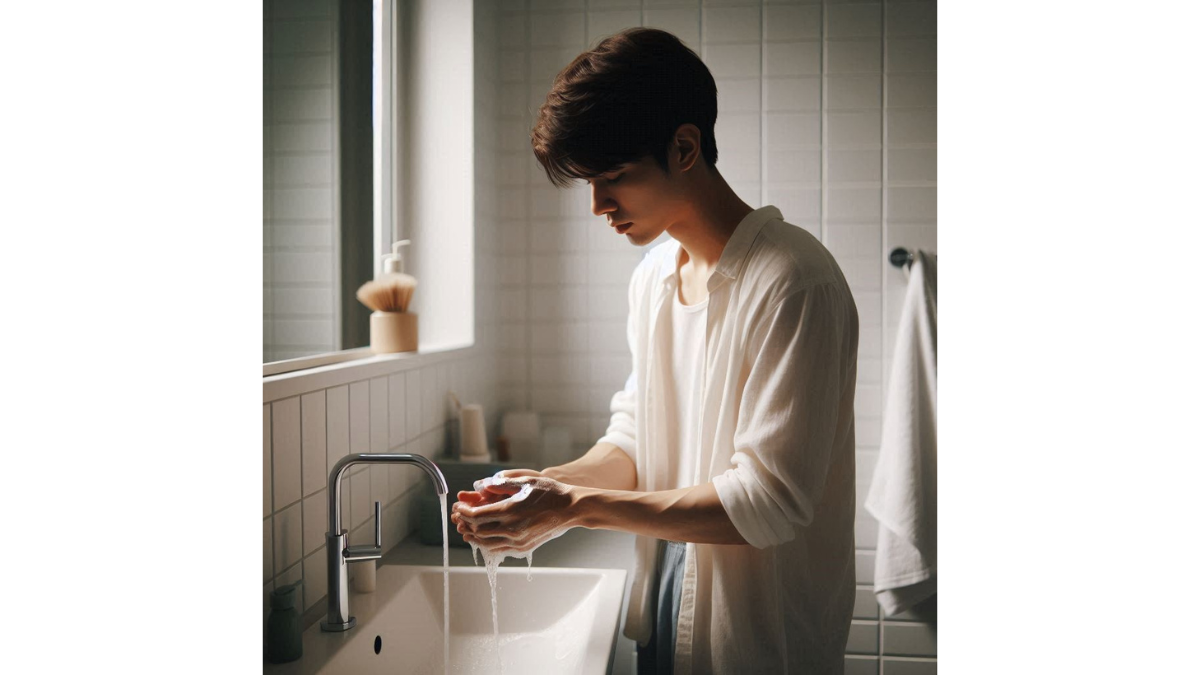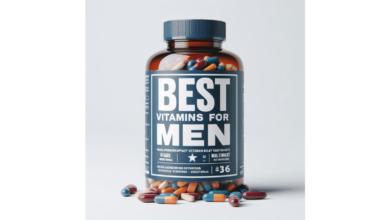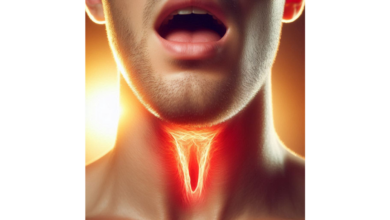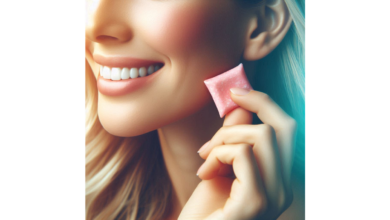How to maintain personal hygiene

How to maintain personal hygiene – Personal hygiene is far more than just a practice; it’s a vital part of our health and well-being. Think of it as the first line of defense against diseases and infections. Just as you wouldn’t step out into the world in dirty clothes, it’s crucial to present ourselves with clean bodies and fresh minds. When you maintain your personal hygiene, you’re not just protecting yourself; you’re also considering those around you. Imagine being in close quarters with someone who hasn’t prioritized their hygiene. It can be an uncomfortable experience, to say the least. In a broader sense, neglecting personal hygiene can lead to social stigmas or feelings of isolation. For many, hygiene is a deeply personal journey. As someone who faced difficulties with skin issues in high school, I realized the importance of maintaining not just cleanliness, but a healthy self-image. A good hygiene routine helped boost my confidence and made daily interactions more pleasant.
Benefits of Maintaining Personal Hygiene
Incorporating effective personal hygiene practices into your daily routine comes with a myriad of benefits. Here are some ways in which maintaining personal hygiene can positively impact your life:
- Health Protection: Consistent hygiene practices significantly reduce the risk of illnesses, from the common cold to more serious conditions.
- Social Acceptance: Cleanliness can lead to better social interactions. People are generally drawn to individuals who take care of their hygiene, fostering positive relationships and networking opportunities.
- Mental Well-being: A fresh, clean feeling can enhance your mood and increase your productivity. Just think about how good you feel after a long, refreshing shower or a thorough grooming session!
- Confidence Booster: With good hygiene comes the confidence to interact with others without self-consciousness. Picture yourself walking into a room feeling refreshed and clean—it’s empowering!
- Preventing Skin Issues: Good personal hygiene helps minimize skin irritations and infections, ensuring your skin stays healthy and vibrant.
In conclusion, personal hygiene crafts not only your health but also shapes how you engage with society. By understanding its importance and benefits, you can transform your daily routine into a pathway for overall wellness. Making a few simple changes in your hygiene practices today can yield substantial rewards tomorrow. As we dive deeper into specific hygiene practices, remember that caring for yourself is a form of respect—not just for you, but for those you interact with every day.
Daily Hygiene Practices
Bathing and Showering
When it comes to daily hygiene practices, bathing and showering are foundational elements. They serve not just to remove dirt and sweat, but they also offer an opportunity for self-care and relaxation. Think of a shower as more than just a chore; it’s a mini-retreat where you can unwind and refresh. While it may seem simple, the way you bathe can significantly affect your overall cleanliness and skin health. Here are some tips to keep in mind:
- Frequency: Depending on your lifestyle and activities, aim to shower at least once a day. If you exercise or work in a particularly dirty environment, consider showering more often.
- Temperature: Use warm water instead of hot. Hot water can strip natural oils from your skin, leading to dryness. A warm shower feels great and maintains your skin’s moisture balance.
- Products: Invest in a gentle body wash and a hydrating moisturizer. Avoid harsh soaps that can irritate your skin.
- Technique: Pay attention to commonly neglected areas such as your back, feet, and scalp. A good tip is to use a loofah or washcloth to ensure a thorough cleanse.
Taking a few moments a day to practice proper bathing techniques can immensely enhance your physical and mental well-being.
Oral Hygiene
Just as important as showering is maintaining excellent oral hygiene. A bright smile not only influences personal confidence; it also communicates your overall health to those around you. Here’s how you can ensure your oral hygiene is top-notch:
- Brushing: Brush your teeth at least twice a day for two minutes each time. Don’t forget to brush your tongue as well! A clean tongue helps eliminate bad breath.
- Flossing: Floss daily to remove food particles and plaque from between your teeth. You’d be surprised how many people skip this step, but it’s crucial for preventing cavities.
- Mouthwash: Incorporate an antibacterial mouthwash into your routine. It kills germs that cause bad breath and helps to protect your gums.
- Regular Dental Visits: Schedule your dental check-ups every six months. These visits are not just for cleaning; they can prevent potential health issues before they become serious.
I recall a time when I neglected my oral hygiene amidst a busy schedule. It didn’t take long before I faced the consequences—those dreaded dental cavities! That experience taught me the importance of consistency in maintaining oral hygiene. In summary, by incorporating daily showering and proper oral care into your routine, you set the stage for a healthier, more confident version of yourself. As we move forward, remember that hygiene is all about creating habits that serve both your body and mind.
Clothing and Hygiene
Importance of Clean Clothes
As you continue your journey towards improved personal hygiene, don’t overlook one vital aspect—your clothing. Clean clothes are not just a fashion choice; they play a critical role in your overall hygiene and health. Wearing fresh garments can significantly affect how you feel and how others perceive you. Let’s break down why clean clothes are essential:
- Bacteria Control: Every time you wear an outfit, it accumulates sweat, oils, and even dirt. Over time, these factors can lead to unpleasant odors and skin issues. That’s why putting on a clean shirt after a long day feels so refreshing!
- Social Perception: Clean, well-maintained clothing often correlates with professionalism and self-respect. A polished appearance can boost your confidence, especially in job interviews or social gatherings.
- Skin Health: Wearing unwashed clothes can cause skin irritations or infections, especially in sensitive areas. Regularly washing your clothing helps to keep one’s skin healthy and irritation-free.
Reflecting on my college days, I remember a time when I got too caught up in studies and neglected to do laundry. I started experiencing skin bumps and irritation that, after a painful dermatologist visit, I learned were due to my dirty clothes. This experience reinforced the importance of wearing clean garments and making laundry a priority.
Laundry Tips for Personal Hygiene
Now that you understand the importance of clean clothes, let’s explore some laundry tips that will help ensure your garments contribute positively to your hygiene:
- Sort Your Laundry: Segregate your clothes by color and fabric type. Whites, darks, and delicates should each have their own wash cycle to prevent color bleeding and fabric damage.
- Use the Right Detergent: Choose an effective laundry detergent, particularly one formulated to fight odors and stains. A high-quality laundry detergent can make all the difference in how fresh your clothes smell.
- Wash Regularly: Establish a laundry schedule to avoid the dreaded pile-up. Make it a habit to wash workout clothes after each use; they harbor bacteria rapidly.
- Don’t Overload the Machine: Ensure you have enough room in your washing machine for clothes to move freely. Overloading can prevent clothes from getting truly clean.
- Dry Thoroughly: After washing, ensure your clothes dry completely to deter mold and mildew growth. Invest in proper hangers or a drying rack if needed.
In conclusion, clean clothes are an integral part of your personal hygiene routine. By prioritizing laundry practices, you’ll enhance both your health and confidence. As you continue on this path, remember that every small effort contributes to a larger goal of total well-being.
Hand Hygiene
Proper Handwashing Techniques
Continuing our exploration into personal hygiene, let’s focus on one of the most crucial aspects—hand hygiene. Your hands come into contact with countless surfaces daily, making proper handwashing techniques essential in preventing the spread of germs and infections. Did you know that studies show handwashing can reduce the risk of respiratory infections by about 20%? It’s true! Let’s dive into the steps you should follow for effective handwashing:
- Wet Your Hands: Begin by wetting your hands thoroughly under clean, running water—warm or cold.
- Apply Soap: Use enough soap to cover all surfaces of your hands. Here’s a little tip: liquid soap is often more effective than bar soap, as it’s less likely to harbor bacteria.
- Scrub for 20 Seconds: While scrubbing, make sure to cover all areas, including:
- Back of your hands
- Between your fingers
- Under your nails
- Your wrists
- Rinse Well: Rinse your hands under clean, running water to remove all soap and germs.
- Dry Your Hands: Use a clean towel or air dry them. If using a towel, consider turning off the tap with it to avoid re-contaminating your hands.
Incorporating these simple steps into your routine can greatly enhance your health. I remember when I worked in a busy café during college, and we had constant reminders about proper handwashing techniques—we couldn’t afford to risk customer satisfaction!
Importance of Hand Sanitization
While proper handwashing is pivotal, hand sanitization also plays a significant role in a comprehensive hand hygiene strategy. Hand sanitizers are an excellent alternative when soap and water aren’t available. Here’s why hand sanitization is essential:
- Convenient: Hand sanitizers are portable and can be easily used on the go—perfect for travel or when you’re out shopping. Just a few pumps, and you’re good to go!
- Effective Against Germs: Look for hand sanitizers with at least 60% alcohol content. It’s a quick way to kill germs, viruses, and bacteria.
- Reduce Illness: Regular use of hand sanitizer can lower the chance of becoming ill, especially during flu season or amid a health crisis.
Here are some quick tips for effective hand sanitization:
- Apply enough product to cover your hands completely.
- Rub your hands together, ensuring you cover all areas, until dry—this should take around 20 seconds.
Remember, while hand sanitizers are great, they shouldn’t replace soap and water when you’re dealing with dirt or grease. In conclusion, both proper handwashing and hand sanitization are vital components of your personal hygiene routine. Together, they form an effective barrier against germs and contribute significantly to your overall health and well-being. As you continue to develop your hygiene habits, keep in mind that every small action counts toward a healthier future.
Hair and Scalp Hygiene
Washing and Conditioning Hair
Following our thorough discussion on hand hygiene, let’s shift our focus to another crucial aspect of personal grooming—hair and scalp hygiene. Maintaining clean and healthy hair isn’t just about aesthetics; it greatly affects your overall hygiene and self-confidence. First and foremost, regular washing is important, but it’s essential to know how often you need to wash your hair. For many, washing every two to three days strikes a good balance, while those with oilier scalps might prefer daily washing. Here’s a straightforward guide to washing and conditioning your hair properly:
- Wet Your Hair: Start by saturating your hair completely with warm water. This opens the cuticles and allows the shampoo to work effectively.
- Apply Shampoo: Use a quarter-sized amount of shampoo that’s appropriate for your hair type. Gently massage it into your scalp in circular motions—this stimulates the scalp and promotes hair health.
- Rinse Thoroughly: Ensure that you rinse out all the shampoo completely to avoid buildup.
- Condition Your Hair: Apply a conditioner, focusing on the ends rather than the scalp, as conditioner on the scalp can lead to greasiness. Let it sit for a couple of minutes, then rinse out with cool water—this helps seal the cuticles.
I remember my college roommate, who had beautiful long hair but never conditioned it properly. Once she started, we noticed an incredible difference—her hair became shinier and more manageable. Don’t overlook the importance of quality conditioners!
Tips for Maintaining a Healthy Scalp
Now that we’ve covered the basics of washing and conditioning, let’s discuss how you can maintain a healthy scalp, which is just as important as hair care. An unhealthy scalp can lead to conditions like dandruff, itching, and even hair loss. Here’s how to keep your scalp in top condition:
- Exfoliate Your Scalp: Just like your skin, your scalp gets buildup too. Consider using a gentle scalp scrub once a month to remove dead skin and product residue.
- Avoid Hot Water: Washing your hair with hot water can strip your scalp of essential oils, leading to dryness. Opt for lukewarm water to maintain moisture.
- Mind Your Diet: A balanced diet rich in vitamins and minerals contributes to scalp health. Foods high in omega-3 fatty acids, vitamins A and E, and biotin can promote healthy hair and scalp.
- Limit Styling Products: Regular use of heavy gels, sprays, and waxes can lead to buildup on your scalp. Try to go product-free every now and then to allow your scalp to breathe.
- Scalp Massages: Regularly massaging your scalp for a few minutes can stimulate blood circulation, promoting healthier follicles.
As we wrap up this section, remember that hair and scalp hygiene is a vital dimension of your overall personal hygiene routine. By washing and conditioning your hair correctly and ensuring your scalp remains healthy, you enhance not just your look but also your self-esteem. Keep these practices in mind, and enjoy the benefits of luscious, vibrant hair!
Nail Hygiene
Importance of Clipping and Cleaning Nails
As you continue to polish your personal hygiene regimen, let’s delve into an often-overlooked yet essential aspect: nail hygiene. Your nails can harbor dirt and bacteria, making them a potential source of infections if not cared for properly. Regular clipping and cleaning of your nails not only enhances your aesthetics but also contributes to your health. Here’s why prioritizing nail hygiene is critical:
- Preventing Infections: Long or untrimmed nails can trap food particles and dirt, which can lead to fungal infections or hangnails. Keeping them short minimizes these risks.
- Promoting Overall Cleanliness: Clean, well-groomed nails contribute to a polished appearance. Just think about shaking hands or conducting daily tasks—people inherently notice well-maintained nails!
- Reducing Risk of Injury: Long nails can snag on clothing, leading to painful tearing. Regular clipping keeps your nails manageable and reduces the chance of accidents.
I once neglected my nail care routine for a few weeks, thinking it was insignificant, and ended up with painful hangnails that took longer to heal than expected. From then on, I made nail maintenance a priority, and it really does make a difference in my comfort!
Nail Care Products and Tools
To maintain healthy nails, it’s essential not only to clip and clean but also to use the right nail care products and tools. Here’s a handy guide on what to have in your nail care kit:
- Nail Clippers: Invest in a quality pair of nail clippers. Look for options with ergonomic designs for better grip and performance.
- Nail Files: After clipping, use a nail file to smooth any rough edges. A good habit is to file in one direction rather than a back-and-forth motion to minimize breakage.
- Cuticle Pusher/Cutter: Keeping your cuticles neat is as important as maintaining your nails. A cuticle pusher can help push back excess cuticle, while a cuticle cutter should be used with caution to avoid injury.
- Nail Buffers: These tools can help soften and smooth the surface of your nails, giving them a healthy shine without the need for polish.
- Moisturizer: Applying a moisturizer specifically for nails and cuticles can keep them hydrated. Look for products that include nourishing ingredients like vitamin E or jojoba oil.
- Nail Strengthening Treatments: If your nails tend to be brittle or break easily, consider using a strengthening treatment. These products can help promote growth and resilience.
By regularly incorporating these products and techniques into your grooming routine, you can keep your nails looking fabulous and healthy. It’s a small investment in time and resources that leads to substantial personal satisfaction. In summary, nail hygiene is a crucial component of your overall self-care. By understanding the importance of clipping and cleaning your nails, and by using the right tools and products, you can maintain not only your health but also your confidence. So go ahead and give your nails the attention they deserve!
Facial Hygiene
Skincare Routine for Personal Hygiene
As we move forward in our discussion on personal hygiene, let’s focus on facial hygiene, which is a critical component of self-care. Having a consistent skincare routine tailored to your skin type can work wonders not only for your complexion but also for your overall sense of well-being. Here’s a simple skincare routine you can easily incorporate into your daily life:
- Cleansing: Start by washing your face twice a day, morning and night, with a gentle cleanser suited to your skin type. This removes dirt, oil, and makeup residue. I personally love a foaming cleanser that gives my skin that fresh feeling!
- Exfoliating: Exfoliate your skin 1-2 times a week to remove dead skin cells. This step can help in preventing clogged pores and promotes cell renewal. However, don’t overdo it; too much exfoliation can lead to irritation.
- Toning: After cleansing, use a toner to help balance your skin’s pH and remove any remaining impurities. It’s a refreshing step that preps your skin for the products to follow.
- Moisturizing: Applying a suitable moisturizer daily is vital, even if you have oily skin! Look for lightweight, oil-free options if you’re concerned about breakouts.
- Sunscreen: Never skip sunscreen, even on cloudy days. A broad-spectrum SPF of at least 30 protects your skin from harmful UV rays. I’ve made it a habit to apply sunscreen every morning, and I can’t stress its importance enough!
By sticking to this routine, you can effectively maintain your facial hygiene and keep your skin looking its best.
Benefits of Facial Hygiene Practices
Adhering to a solid facial hygiene routine provides numerous benefits that go beyond just cosmetic appeal. Here are some key advantages of maintaining facial hygiene:
- Prevention of Acne and Breakouts: Regular cleansing and exfoliating help keep pores unclogged, reducing the likelihood of pimples and acne.
- Healthy Glow: A consistent skincare routine promotes a luminous complexion. Once I began taking my skincare seriously, friends started commenting on how radiant I looked!
- Increased Confidence: Feeling good in your skin translates to greater self-esteem. Knowing you’re taking care of yourself allows you to face the world with confidence.
- Early Aging Prevention: Daily care can help combat signs of aging, such as wrinkles and fine lines, allowing you to look youthful longer.
- Hydration and Balance: Proper skincare helps maintain the skin’s moisture barrier, reducing dryness and creating a smooth, soft texture.
In conclusion, facial hygiene is crucial to personal hygiene and overall well-being. By implementing a straightforward skincare routine, you’ll likely experience a multitude of benefits that enhance not only your appearance but also your confidence. Keep investing in your skin—it’s a reflection of the care you put into your health!
Personal Hygiene During Menstruation
Menstrual Hygiene Products
Transitioning from our discussion on facial hygiene, it’s time to tackle a significant yet often stigmatized topic: personal hygiene during menstruation. For many individuals, having a reliable hygiene routine during their period is essential for comfort and health. The first step in this process is choosing the right menstrual hygiene products. There are several options available, each with their pros and cons. Here are some of the most popular:
- Sanitary Pads: These absorbent pads can be stuck to the inside of your underwear. They come in various sizes and absorbencies, making them suitable for different flow levels. I remember my first period—my mom introduced me to pads, and they filled me with a sense of security.
- Tampons: Tampons fit inside the vaginal canal and absorb menstrual flow internally. Many people prefer tampons for their discretion, though they require more care in terms of usage and change frequency.
- Menstrual Cups: These bell-shaped cups are reusable, made from silicone or rubber, and can be worn for up to 12 hours. They’re eco-friendly and can be cost-effective over time. I made the switch to a menstrual cup a couple of years ago, and it was a game-changer for comfort and sustainability.
- Period Underwear: These specially designed underwear can absorb menstrual flow. They’re incredibly discreet and comfortable. They are an excellent alternative or supplement to other products.
When selecting a product, consider factors like your flow intensity, comfort level, and lifestyle.
Tips for Maintaining Personal Hygiene During Periods
Beyond selecting the right products, here are some helpful tips for maintaining personal hygiene during menstruation:
- Change Regularly: Regardless of the product, it’s crucial to change it regularly. For pads, this typically means every 4-6 hours. Tampons should be changed every 4-8 hours—never leave them in for more than 8 hours due to the risk of Toxic Shock Syndrome.
- Stay Clean: Use a gentle cleanser to wash your genital area daily. This action helps keep odor at bay and ensures overall hygiene. It’s essential to dry the area well to prevent moisture buildup, which can lead to irritation.
- Wear Breathable Fabrics: Choosing cotton underwear and breathable clothing during your period can help reduce discomfort and prevent unwanted odors.
- Stay Hydrated: It may seem unrelated, but drinking enough water can help reduce bloating and discomfort.
- Track Your Cycle: Keeping track of your cycle can help you prepare in advance. Plus, this awareness can inform discussions with a healthcare provider, should any concerns arise.
In conclusion, maintaining proper personal hygiene during menstruation is crucial for comfort and health. By selecting the right products and following these tips, you can navigate your period with confidence and ease. Remember, it’s an entirely natural process, and prioritizing your comfort is key!
You might also find this article helpful Building a Strong Foundation :Balanced Diet Enhances Your Health





